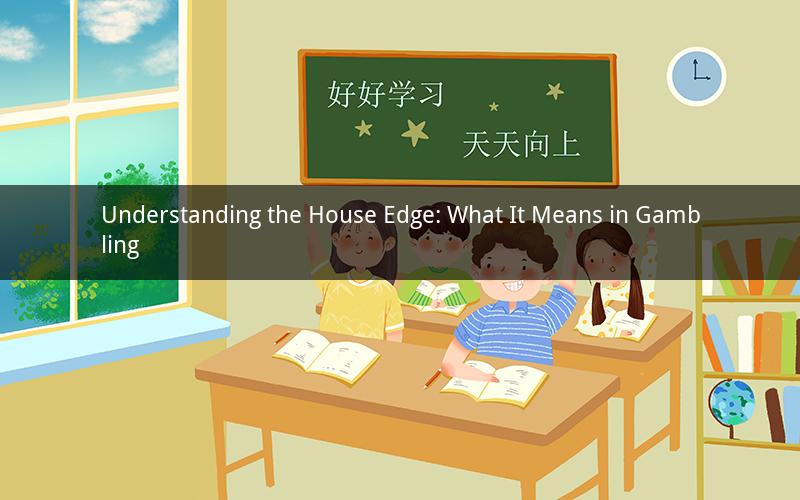
The house edge, also known as the vigorish, is a term commonly used in the gambling industry. It refers to the mathematical advantage that casinos and gambling houses have over their players. This advantage allows them to consistently make a profit, regardless of the outcomes of individual games. In this article, we will delve into the concept of the house edge, how it is calculated, and its impact on the gambling experience.
What is the House Edge?
The house edge is the percentage of the player's money that the casino expects to win in the long run. It is a statistical measure that applies to all casino games, from slots to poker. The house edge is determined by the game's rules, the payouts, and the odds of winning. In other words, it represents the average amount of money a player can expect to lose per bet placed on a game.
How is the House Edge Calculated?
Calculating the house edge requires an understanding of the game's rules, the payouts, and the odds of winning. Here's a basic formula for calculating the house edge:
House Edge = (Total Losses / Total Bets) x 100
To calculate the house edge, you would need to know the expected losses for each bet placed on a game. For example, in blackjack, the house edge can vary depending on the number of decks used and the player's strategy. A game with a lower house edge is considered more favorable to the player.
The Impact of the House Edge on the Gambling Experience
The house edge is a critical factor in determining the overall profitability of a gambling venture. It is the primary reason why casinos and gambling houses can continue to operate and offer games to players. Here are a few key points to consider regarding the house edge:
1. The house edge ensures that casinos make a profit in the long run. This means that, on average, players are expected to lose money over time.
2. Games with a lower house edge offer players better odds of winning. However, this does not guarantee a profit, as the house edge is still in favor of the casino.
3. The house edge is not the only factor that affects a player's chances of winning. Skill, strategy, and luck also play significant roles.
4. Some games, such as slot machines, have a higher house edge than others, like blackjack or poker. This means that players can expect to lose more money on slot machines than on these other games.
Frequently Asked Questions
1. What is the house edge in roulette?
Answer: The house edge in European roulette is 2.7%, while in American roulette, it is 5.26%. This is due to the presence of the double zero in American roulette, which gives the casino an additional advantage.
2. How does the house edge in poker compare to other games?
Answer: The house edge in poker is lower than in many other casino games. This is because the skill and strategy involved in poker give players a better chance of winning. However, the house edge can still be high if the game is played with a full deck of cards.
3. Can players reduce the house edge by using a specific strategy?
Answer: Yes, players can reduce the house edge by using a specific strategy or betting system. For example, in blackjack, players can use card counting to gain an advantage over the house. However, these strategies are not foolproof, and the house edge will always be present.
4. Is the house edge the same for all players?
Answer: No, the house edge is not the same for all players. It is a statistical measure that applies to the long run and the average player. Individual players may experience different outcomes based on their skill, strategy, and luck.
5. Can players avoid the house edge entirely?
Answer: No, players cannot avoid the house edge entirely. The house edge is an inherent part of the game and represents the casino's mathematical advantage. However, players can minimize their losses by choosing games with a lower house edge and using effective strategies.